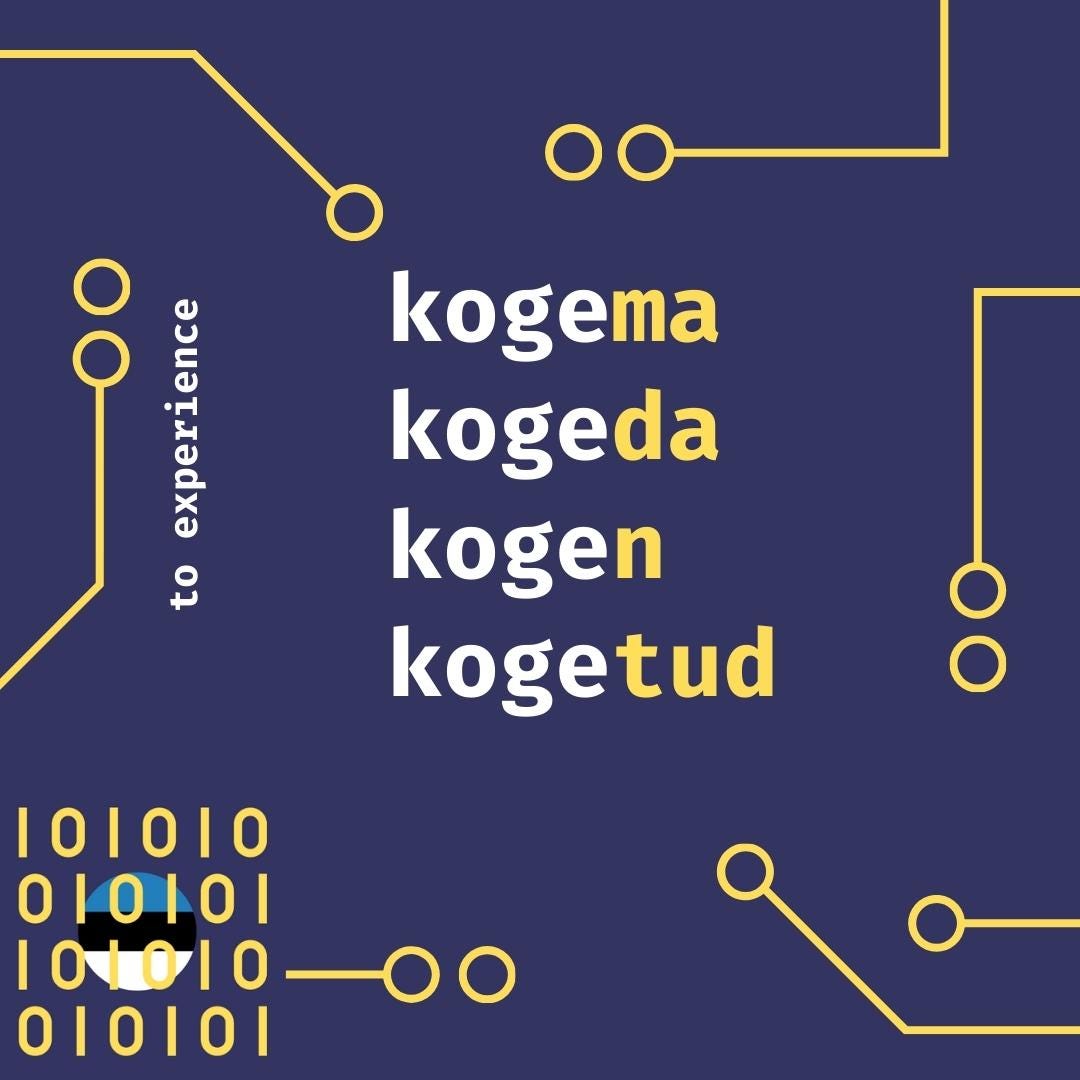Vocab: kogema
to experience
to experience, to undergo
Building blocks
koge(mus)- - experience
-ma - infinitive ending
It’s derived from Proto-Finnic kokëdak, which translates “take a look at” or “to try”
How to use it
Here are a few ways to use it:
Experiencing an event:
Ma kogesin imelist kontserti. (I experienced a wonderful concert.)
Experiencing an emotion:
Pärast võitu kogesin suurt rõõmu. (After the victory, I experienced great joy.)
Experiencing a situation:
Ärijuht koges rasket majanduskriisi. (The business leader experienced a tough economic crisis.)
Keep in mind when using kogema:
What you experience is in the Partitive case (third base form)
Examples
Ta koges sügavat kurbust sõbra lahkumise tõttu.
Literally: “He/She experienced deep sadness friend’s departure due to”
Idiomatically: “He/She experienced deep sadness due to a friend's departure.
Ta - Pronoun - Nom Sg, "He/She"
koges - Verb - 3P Past Sg, "experienced"
sügavat - Adjective - Part Sg, "deep"
kurbust - Noun - Part Sg, "sadness"
sõbra - Noun - Gen Sg, "friend's"
lahkumise - Noun - Gen Sg , "departure"
tõttu - Postposition - "due to"NB! When using the word “tõttu” (due to), due to who or due to what something takes place is in the Genitive case (second base form).


